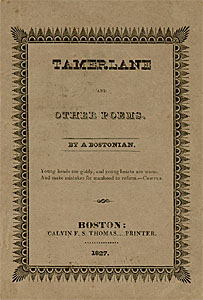Alternate title… Perils of Publishing…
How to keep sane while traversing a career in the wilds of publishing.
Hello there! Melodie here, with more shop talk about the perils of publishing. Oh, how I miss those writer gabfests in the bar at the Drake Hotel where we did what authors like to do best when they get together. Which is, bitch about the industry.
There are many steps to becoming a published author with a traditional house, and each one is a milestone. First, you finish that book (pass the scotch.) Then, you bag an agent if you're lucky (more than a wee dram for that.) Then, you get a contract for your first book (break out the champagne.)
You make it through that fiendish obstacle course, and people think you've got it made. Hell, YOU think you've got it made. All you need to do now is write! Other people will take care of all the rest of it. But believe me, everything is not clear sailing from there.
Strange things happen in publishing. Things that not even a clairvoyant with a crystal ball could predict.
You may say, "Oh, she's being so far-fetched. That'll never happen." But let me tell you, every one of these things have happened to me.
And guess what? I'm still standing. (okay, sitting in a comfy chair while typing this) Still writing. And still getting published.
Welcome to the insane, inane world of publishing.
1. Your agent - the one from New York who finally agreed to represent you after months of negotiation...the one who was negotiating a deal with Ace Fantasy in England and Berkley Paranormal at home, will kick the bucket before cementing a deal (no disrespect meant. He was a class guy.) Worse, no one in his office will let you know for two months. Worse, you didn't think to question the length of time between emails, because he was so lousy at getting back to you in the first place.
2. The ad campaign that was carefully planned and paid for by your publisher will feature an ad where the title of your book is misspelled in such a way that not even Saturday Night Live could have come up with it. Or saved it.
Rowena and the Dark Lard may be a great name for a cookbook. But it is unfortunately not the sort of thing to entice readers of epic fantasy to part with their money. (real name of book: Rowena and the Dark Lord)
3. The book that was an outlier (Sci-fi) that your publisher loved, that your pals thought was your best, that got so many good reviews on Amazon...will go nowhere.
4. The publisher that took a chance on you, believed in you, applauded when your book was featured on USA today and helped to bring your book series to bestseller status, will go out of business.
5. You can't get the rights back for the covers of those books because the artist who worked for the house has disappeared off the face of the earth.
6. Your next publisher - the one with the world-wide reputation and selling legs - will decide to close the line your series is in, even though your books are bestsellers for them.
7. And the unfunny one - Someone closest to you will die the week your 15th book comes out, such that the book receives no attention at all for the year-plus you are in heavy grief.
8. Back to funny - Your 16th book will come out the first month of a world-wide Pandemic, and all promotion events will be canceled for at least two years.
9. More pandemic humour - You will be asked to emcee a prestigious book award event, which will be cancelled due to the pandemic.
10. And More - Your 17th book will be held up in production at least 6 months due to a paper shortage worldwide.
I used to tell my writing classes that you need three things to become a writer: You need talent. You need to learn the craft. And you need passion.
I've now decided that the most important thing you need to continue to be a writer is a healthy sense of humour! (and a big supply of scotch)
So raise a toast to all the authors out there who continue to write and publish, while continually having to face loopy hurdles like the above.
How about you? Would love to hear more Perils of Publishing stories in the comments below.
Melodie Campbell continues to write books and short stories south of Toronto, in spite of the perils. You can find her books in all the usual suspects.






































